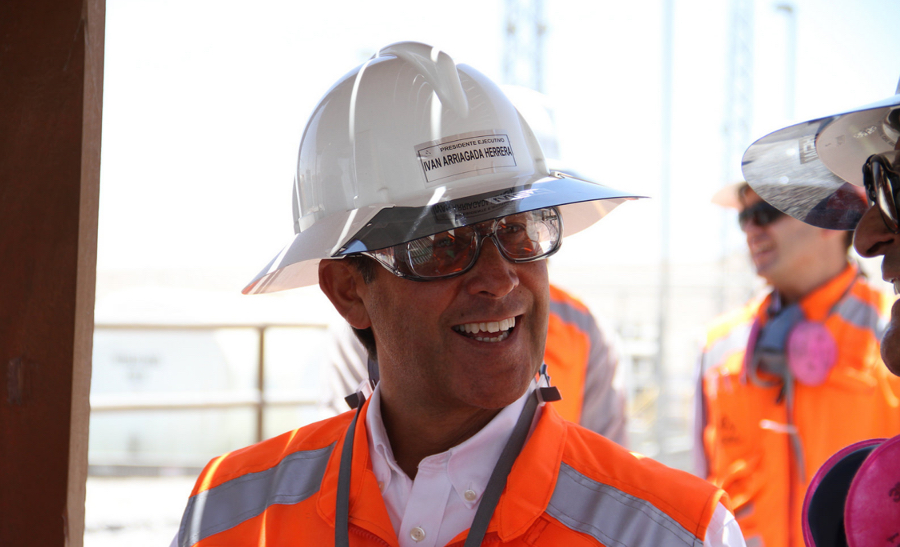Temporary bottlenecks hike costs for copper miners in Chile, Antofagasta CEO says

The global economic recovery has created bottlenecks in transportation and energy supply that are pushing up costs for global miners, the head of Chile’s Antofagasta Minerals told Reuters, though he said he expects those hiccups to be temporary.
Copper prices have soared this year as demand and economic activity rebounds from pandemic lows but supply remains tight, a situation that Antofagasta Chief Executive Ivan Arriagada said was likely to persist despite the bottlenecks.
“Those factors that introduce volatility in the short-term we believe are not enough to make up for good fundamentals (in the copper market),” Arriagada told Reuters in an interview just prior to the LME Week conference in London. “Our vision is that we are going to have prices that are similar to what we are seeing today in the near future.”
Copper hit $4.50 per pound earlier this year but has settled at around $4.10 per pound, a level “more representative” of what will be seen in 2022, Arriagada said.
Antofagasta’s top executive said troubles with energy supply – one of several bottlenecks – were unlikely to linger in Chile as the need for heating declines in the fast-approaching southern hemisphere summer, though other issues might persist.
Some equipment necessary for the company’s ongoing projects, for example, had been transported to Chile via air amid ongoing problems with maritime freight costs. But he called that a “one-off” situation and said he expected energy and maritime freight costs to fall to more normal levels next year.
“The cost pressures associated with bottlenecks in logistics, we believe that they are for the most part transitory, not…permanent effects,” he said.
Climate woes
The London-listed miner, majority owned by Chile’s Luksic family, has said 50,000 tonnes of production could be at risk next year because of a severe drought that has hobbled its operations.
But a desalination plant under construction at its flagship Los Pelambres mine, expected to begin operating in the second half of 2022, is nearing 60% completion, Arriagada said, which could help take up some of the slack.
“Today we are running climate and water availability models in order to refine that estimate,” he said, noting that this month the company would present new projections.
The political climate in Chile has also kept miners on their toes.
Arriagada said a bill to sharply hike taxes on miners appears to be headed towards “greater moderation,” and said a bill to ratchet up restrictions on companies that operate around Chile’s many high mountain glaciers should focus on science, not politics.
Antofagasta has maintained its long-term capital expenditure plans and said he hopes uncertainty in Chile, which is also re-writing its constitution, will begin to settle.
The company expects to make an investment decision on improvements at its smaller Centinela mine in northern Chile in the second half of 2022, after completing engineering design work.
“That puts it in a period of time that is after the tax discussion of this Congress (…) and probably also after the discussions of the Constitutional Convention,” he said.
(By Fabian Cambero and Dave Sherwood; Editing by Marguerita Choy)
{{ commodity.name }}
{{ post.title }}
{{ post.date }}




Comments